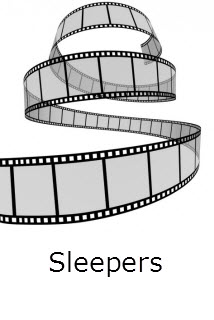Snowden (2016)


Content by Tony Macklin. Originally published on September 17, 2016 @ tonymacklin.net.
Snowden is a movie that percolates with ideas.
At times, it's tepid; at times, it boils.
We know that director Oliver Stone is going to provide liberal leanings, but Snowden is more understated than one might suppose. It raises a question that everyone can struggle with -- freedom or security? Of course, the "freedom" and "security" may only be alleged.
We live in an era where political duplicity and mendacity are in control. Propaganda seems to be everybody's choice. In a system that is bought and paid for, and paid for, and paid for, some of us are looking for some way out. We don't want to reward the propagandists.
We in Las Vegas are in the only state that offers the option of voting for "None of the Above" in the 2016 presidential election, but that's a Pyrrhic victory. But that may be the only victory possible.
Snowden is the story of Edward Snowden (Joseph Gordon-Levitt), a private contractor for the NSA, who revealed that the American government secretly was spying on millions of international citizens, as well as millions of their own. People were being tried and judged in secret.
Many of us know the basics, but Oliver Stone adds dimension by showing how Snowden evolved from a solid conservative - he even quotes Ayn Rand - into an activist "whistleblower." Stone leaves out some of the more blatant comments of Snowden. For Stone, Snowden was a young man who wanted to serve his country. His actions ultimately were for him the best he could achieve.
The audience may well decide otherwise, and instead of being accused of being overwhelming - as he usually is, Stone is now been accused by many reviewers as being underwhelming. As Edward Snowden knows, you can't win.
Part of the dilemma is the understated performance of Joseph Gordon-Levitt as Snowden. It's engaging and intelligent. But he's no firebrand, which challenges the viewer's expectations. He's a whistleblower, so he should whistle.
When I saw Gordon-Levitt in Mysterious Skin (2004), I predicted that someday he would win an acting Oscar. He's never had a role that was the equal of his in Mysterious Skin. Not even close. But in Snowden, at least he vaults into the upper tier. He won't even get a nomination, because his performance is not showy. Michael Douglas won an Oscar for Wall Street (1988), but the performances in Stone's films often are underrated despite their excellence.
The cast of Snowden is gifted. Perhaps most compelling of all is Rhys Ifans as Snowden's CIA mentor. In one of Stone's best sequences, Snowden stands in front of a huge image of his mentor on a screen. As the image talks to Snowden, it towers over him. It reminds us of Big Brother.
There are several veteran actors in Snowden. Nic Cage is worthy as a frustrated computer expert, as is Tom Wilkinson as Guardian journalist Ewen MacAskill. Zachary Quinto plays the formidable Glenn Greenwald.
Melissa Leo adds humanity as the empathetic documentarian Laura Poitras. Citizenfour - the film about Snowden by Poitras - won an Oscar in 2014.
Shailene Woodley has a difficult role as Lindsay Mills, Snowden's girlfriend. Since he won't speak with her about anything that is classified, their conversations mainly are generic.
Snowden is uncertain until the ending, which cleverly provides us with a jolt of reality. I wish standing ovations were barred forever from movies, but otherwise the sequence is compelling.
In a world of "none of the above," that's something.










